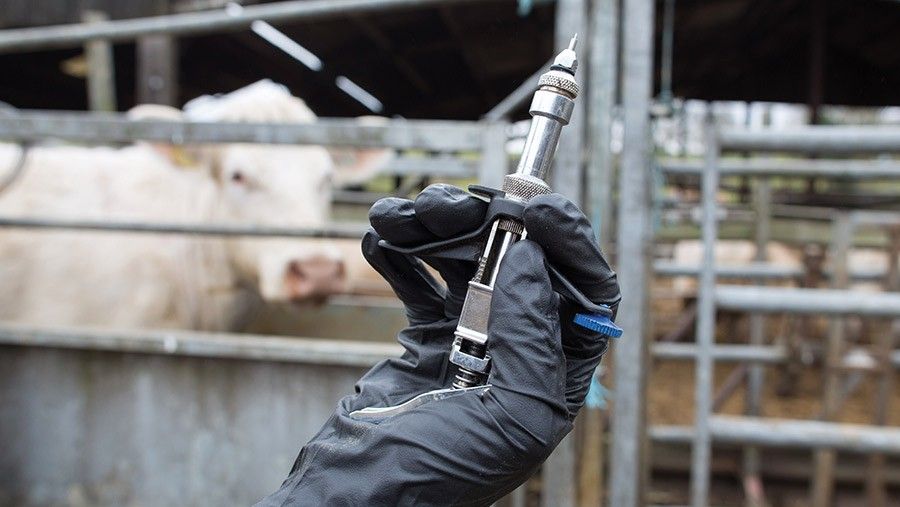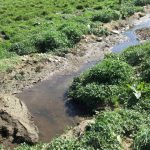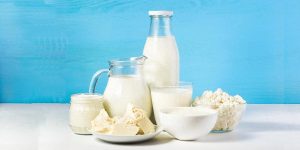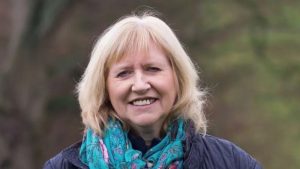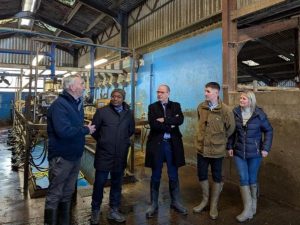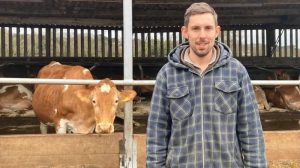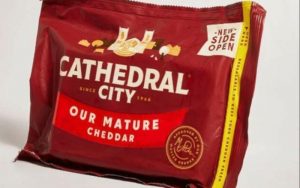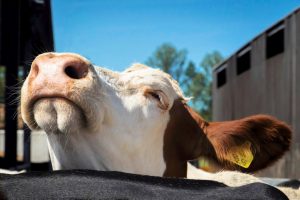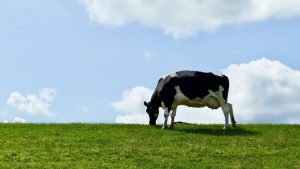
The Ulster Farmers’ Union featured the father and son’s heart-breaking story in a video posted on its Facebook page.
The six-minute film has been viewed more than 105,000 times and it has received 1,500 reactions and more than 200 comments.
In the video, the son describes how the family farm has been running for generations, but it now looks very different, with “empty fields, empty sheds and all the cows have gone”.
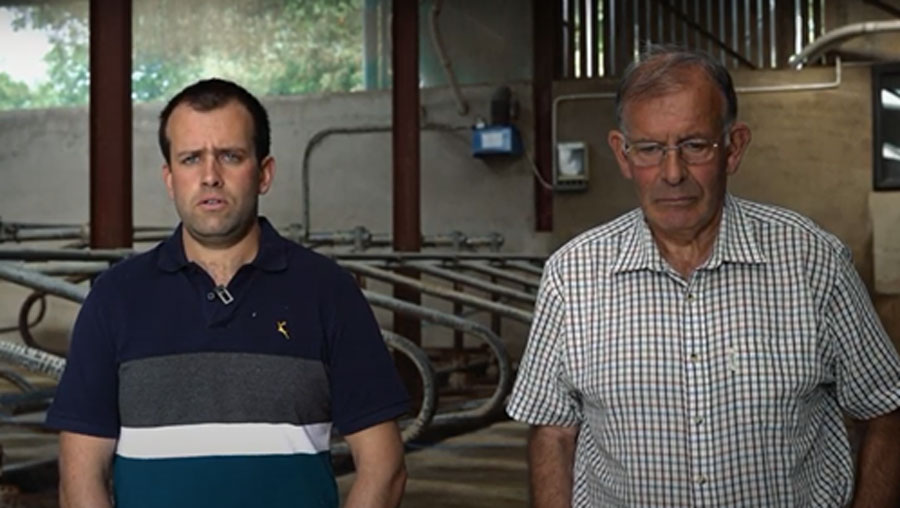
“The cows were our livelihood. They were almost treated like pets. Here, anything they needed, they got,” the farmer said. “We had to look after them because they were our business and they looked after us.”
The evening before the cows were taken away, the dairy farmer explains how he was at home with his five-year-old son when he asked about the cows.
“He always wants to know the whereabouts of the cows and he asked what field are the cows going to tomorrow?” explains the farmer.
Holding back tears, he says: “It would absolutely break him to tell him you are putting the cows on a lorry, sending them away for slaughter.
“TB needs to be sorted once and for all.”
Cows removed
The video then shows some of the cows being loaded on to a cattle lorry to be taken for slaughter.
The father explains how cows have been bred for the farm’s grass-based system since the late 1970s. “There’s cow families, three and four half-sisters all went on the lorry at the one time,” he says.
“At the last take, there were five sets of mother and daughter. One cow with her granddaughter and daughter on the lorry at the one time.
“To see in-calf heifers two or three months from calving going on the lorry in December wasn’t simple. They were spare heifers most years.”
He adds: “TB doesn’t respect which one you keep and which one goes. It was just heart-breaking to see those good heifers going away for slaughter, heavy in calf.
The farmer explains how the herd suffered another outbreak this year a fortnight to three weeks off calving and more cows had to go to slaughter because of TB.
“We have been working on this all my lifetime, and I have picked bulls for components, butterfat and protein,” he says.
“One cow went away doing 9,500 litres at 4.8% butterfat and 3.95% protein. Those kind of cows aren’t available out there for sale and they were working on grass and a grass-based system. The herd average was actually 8,000 litres at 4.4% butterfat and 3.5% protein.”
The son explains how the family has spent 40 years breeding the cows for milk quality and “the whole lot has just been wiped out”.
Loss of income
When the cows go down with TB, farmers only receive the market value for the livestock. There is no compensation from the government for loss of milk, or income – yet they still have a farm to manage.
“What other employee could run a business with no income?” he asks.
The son explains that the TB-condemned cows on the farm had no contact with neighbours’ grazing livestock. Double fencing separates the farms, or if not, a road or a river.
In 2014, the farm suffered a major breakdown and lost half the herd within two tests.
“Whenever we saw we were having a problem, we started to use a bit more sexed semen. Half the herd had been inseminated with sexed semen,” says the father.
“Maybe more than half the remaining herd was inseminated with sexed semen – and that’s all gone. Where is next year’s crop of calves going to come from?”
“We have been dealing with this the same way as we have always done and if you do something the same way and expect a different result, then you’re going to be disappointed.”
Wildlife infection
The farmer urges the NI government to look at the sources of infection in wildlife to tackle the problem.
“The money we have spent over the years has all been wasted because we are not doing anything different to address the sources of infection,” he says.
“The department [Daera] is going to have to take a look at where these sources of infection are coming from. We’re a closed herd, fairly well fenced, no contact with other cattle and yet we have had a major breakdown.”
